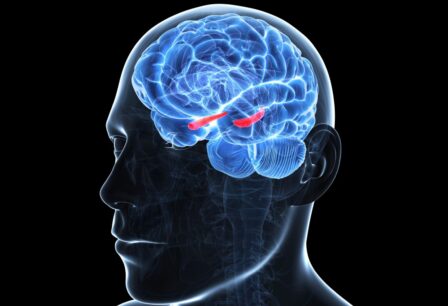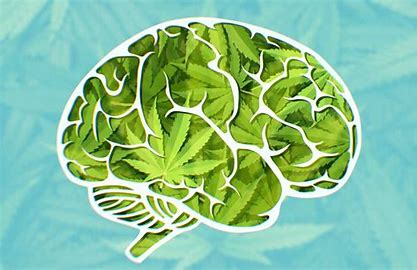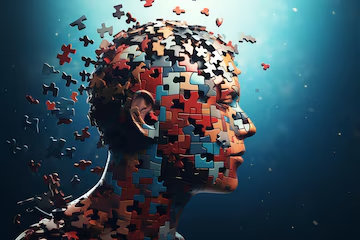Does Marijuana Cause Memory Loss? Separating Fact from Fiction
THC and Memory
Marijuana use is on the rise as more countries and states legalize it for both medical and recreational purposes. Once burdened by stigma, it’s now recognized for its potential to ease pain, reduce anxiety, and offer other therapeutic benefits. As legalization paves the way for more research, regulation, and economic opportunities, it also sparks public health and safety debates. This societal shift reflects changing attitudes and a growing curiosity about its effects. With cannabis use on the rise, there is some concern that marijuana causes memory loss.
Many users and researchers worry about marijuana’s impact on the brain’s ability to process and retain information. THC, the primary psychoactive compound, can interfere with short-term memory by disrupting the hippocampus—the brain’s memory hub. Frequent or heavy use raises even more questions about potential long-term effects on cognitive function. As marijuana use expands, understanding these risks becomes more important than ever.

Explanation of short-term vs. long-term memory
Short-term memory is like a mental notepad—it holds small bits of information for just a few seconds. Think of remembering a phone number long enough to dial it. It helps with quick tasks but fades fast unless reinforced. Long-term memory, on the other hand, is built to last. It stores experiences, skills, and knowledge for days, months, or even years. These two types of memory work together, helping us learn, adapt, and navigate daily life.
So, how does memory actually work in the brain? It starts with the hippocampus, a key player in organizing and storing new information. This structure helps turn short-term memories into long-term ones. But it doesn’t work alone. Neurons—brain cells—communicate through electrical and chemical signals, creating pathways that store and retrieve memories. The stronger these connections, the easier to recall what we’ve learned. The hippocampus and neural signaling shape how we remember and make sense of the world.
Key compounds in marijuana: THC and CBD
Marijuana’s effects come down to two powerhouse compounds: THC and CBD. THC, or tetrahydrocannabinol, is responsible for the high. It latches onto receptors in the brain, shifting mood, memory, and perception. On the other hand, CBD (cannabidiol) won’t get you high. Still, it’s prized for its potential to ease anxiety, inflammation, and pain. The way these two interact shapes how marijuana affects both mind and body.
How THC Affects the Brain to
THC primarily targets cannabinoid receptors, especially in the hippocampus—your brain’s memory hub. Disrupting neuron communication makes processing and storing new information more challenging. That’s why short-term memory tends to suffer when you’re high. The intensity of these effects varies based on factors like dosage, frequency of use, and individual brain chemistry.
Short-Term Memory Impairment
Ever walk into a room and immediately forget why? Weed causes memory loss more often. THC interferes with signals in the hippocampus, making it harder to focus, follow conversations, or recall recent events. These effects are usually temporary, fading as THC exits your system. However, those memory lapses can become more noticeable with higher doses or frequent use.
Long-Term Cognitive Effects
What happens in the long run? Research suggests that heavy, prolonged marijuana use—especially from a young age—could contribute to cognitive decline. Studies have linked frequent use to lower IQ, slower processing speed, and memory issues. Some long-term users even show shrinkage in the hippocampus, which could impact learning and recall. While scientists are still piecing together the whole picture, the evidence points to potential risks for brain health with sustained heavy use.

Factors That Influence Memory Loss from Marijuana
Getting memory loss from weed isn’t an absolute. Several factors play a role.
Dosage and Frequency of Use
The more THC you consume, the more significant the impact on memory. High-potency strains increase the chances of short-term memory lapses, especially with frequent or heavy use. Occasional users may notice mild, temporary effects, while long-term, heavy consumption can lead to more lasting memory challenges.
Age and Brain Development
Age matters—especially for adolescents. The teenage brain is still developing, making it more susceptible to THC’s effects. Research suggests that early and frequent marijuana use can interfere with brain development, potentially leading to long-term memory and cognitive issues.
Type of Marijuana and Consumption Method
Not all marijuana affects memory in the same way. The balance of THC and CBD in a strain can influence its impact—CBD may help counteract some of THC’s memory-related effects. How you consume it also plays a role. Smoking and vaping deliver THC quickly, while edibles take longer to kick in but can produce longer-lasting impacts on memory.
Other Lifestyle Factors
Your overall health and habits can either amplify or lessen marijuana’s effects on memory. Alcohol use, poor sleep, stress, and even diet can influence how well your brain processes and retains information. Genetics and brain chemistry also factor in memory loss, a highly individual experience.
Ultimately, memory loss from marijuana depends on a mix of these elements. Understanding them can help users make more informed choices about their consumption.
Potential Benefits of Marijuana for Memory-Related Conditions
Marijuana’s relationship with memory isn’t all bad. While THC can make short-term recall a struggle, emerging research suggests that CBD might actually help protect the brain—especially in conditions like Alzheimer’s.
CBD and Neurodegenerative Diseases
Scientists are digging into CBD’s potential for treating neurodegenerative diseases like Alzheimer’s and Parkinson’s. Thanks to its anti-inflammatory and antioxidant properties, CBD may help shield brain cells from damage, targeting two major culprits behind these conditions: neuroinflammation and oxidative stress. Early studies hint that CBD could slow cognitive decline and ease memory-related symptoms. While research is still in its early days, the findings offer a glimpse of hope for future treatments.
Marijuana’s Paradoxical Effects on Memory
Marijuana’s impact on memory is anything but simple. THC can disrupt short-term recall by interfering with neural communication. Yet, it may indirectly support memory by reducing anxiety and improving sleep—both essential for cognitive function. Meanwhile, CBD has shown promise in slowing memory loss and protecting brain cells, particularly in Alzheimer’s patients. These mixed effects show just how complex marijuana’s influence on memory can be, depending on factors like dosage, strain, and individual brain chemistry. Epilepsy is commonly associated with memory problems, and cannabis has been used as an alternative treatment.
Debunking Myths and Misconceptions on Marijuana Causing Memory Loss
There’s no shortage of myths about marijuana and memory. Some have a grain of truth, while others are just plain wrong. Let’s clear up the confusion.
Common Myths About Marijuana Causing Permanent Memory Loss
One of the biggest misconceptions? Marijuana causes permanent memory loss. In reality, its short-term effects usually wear off as THC leaves the system. Another myth is that all marijuana strains affect memory in the same way. The truth? THC and CBD work very differently—THC can mess with short-term recall, while CBD may actually support brain health.
Some people even believe marijuana has no benefits for memory at all. But research suggests otherwise. Studies show that CBD might help treat memory-related conditions like Alzheimer’s. The reality isn’t black and white—it’s all about the balance of compounds, the dose, and the person using it.
The Need for More Research
Despite what we know, there’s still a lot to uncover. Marijuana’s effects on memory depend on dosage, frequency of use, and individual brain chemistry, making it challenging to draw firm conclusions. The long-term impact remains a key study area, especially on young and developing brains. More research on whether marijuana causes memory loss isn’t just crucial for separating fact from fiction; it’s essential for helping people make informed choices about marijuana use.
“This article was crafted with the support of AI technology, Microsoft Copilot, and thoughtfully edited by the KindHealth physician staff to ensure accuracy, readability, and a personal touch.”

